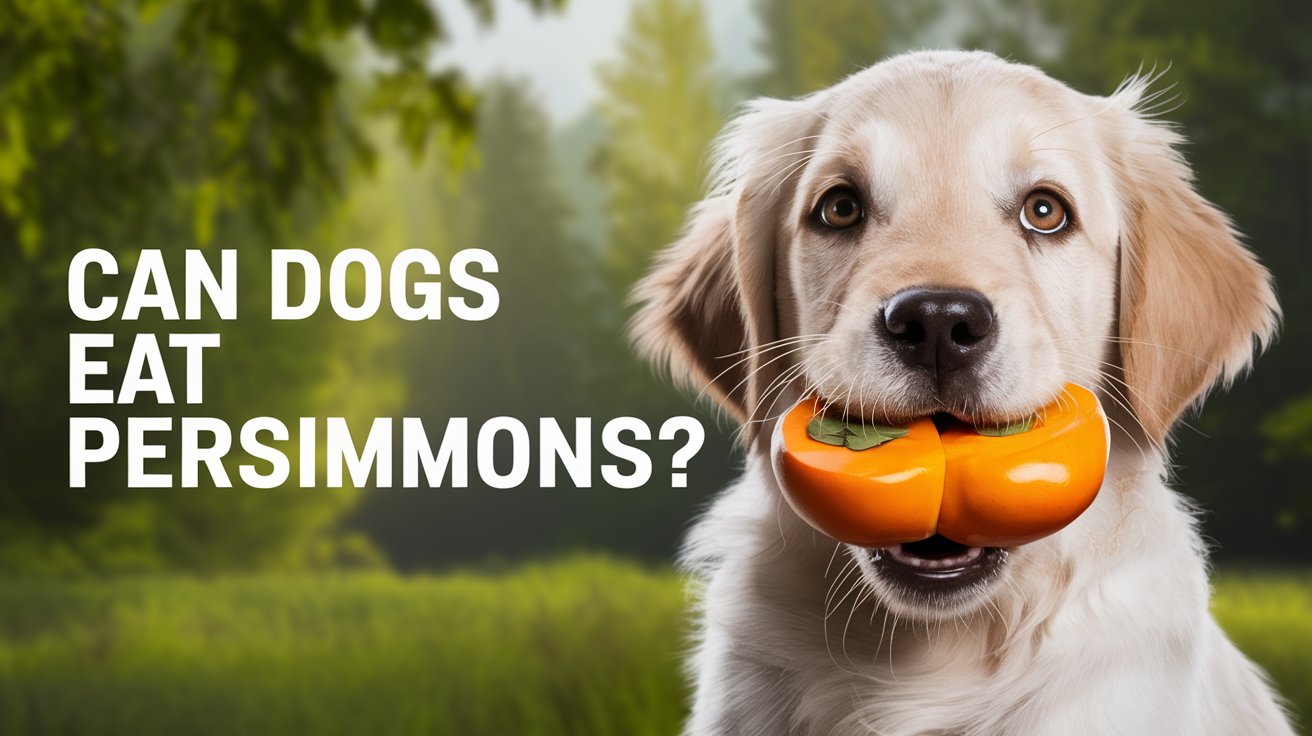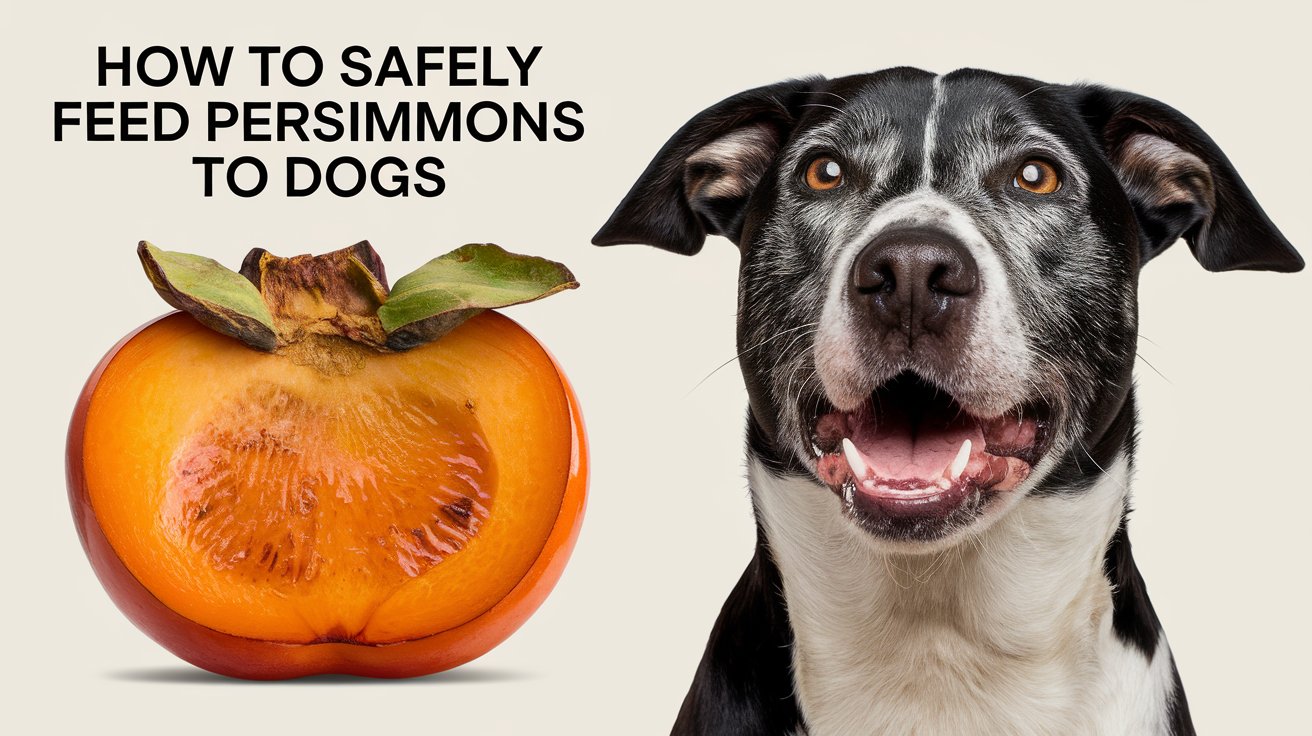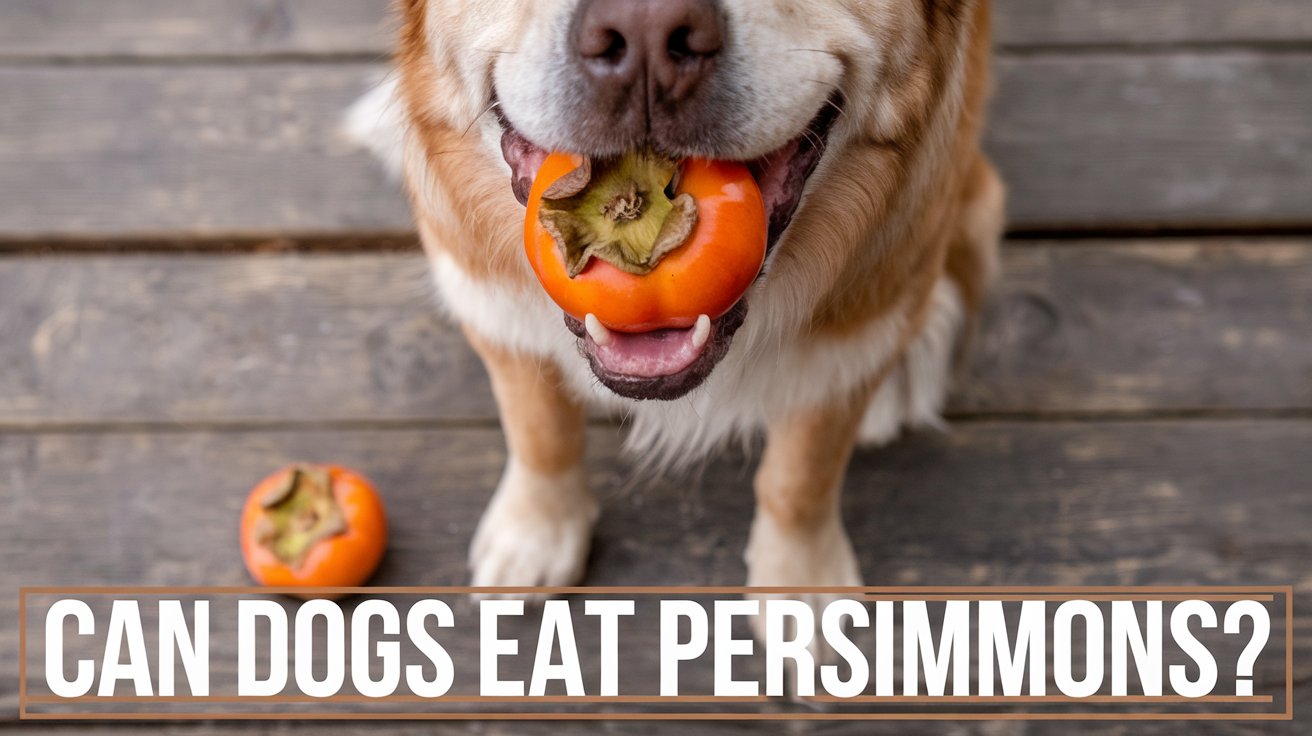
Can Dogs Eat Persimmons? Exploring Benefits, Risks, and Safety
Dogs are curious creatures, often begging for a bite of whatever their owners are eating. Among the many fruits that dog owners may wonder about is the persimmon. Can dogs eat persimmons? The short answer is yes, but as with any food outside their regular diet, it’s essential to be aware of the potential benefits and risks. This guide dives into the world of persimmons, explaining when they can be a tasty and nutritious treat for your furry friend and when they might pose a health hazard.
What Are Persimmons?
Persimmons are a sweet and vibrant fruit primarily found in Asia but also enjoyed worldwide. There are two types, astringent and non-astringent. The astringent variety, like the Hachiya, is packed with tannins, which make the fruit bitter unless fully ripe. Non-astringent varieties, like Fuyu, are sweet even when firm.
This fruit is rich in vitamins, fiber, and antioxidants, making it a popular choice for humans. But when it comes to dogs, things aren’t as straightforward. Let’s explore whether dogs can benefit from persimmons in the same way.
Can Dogs Eat Persimmons Safely?
Yes, dogs can eat persimmons, but moderation and proper preparation are crucial. Persimmons are not toxic to dogs, but the seeds and pits inside the fruit can be harmful. The flesh of the persimmon, when offered in small amounts, can be a delicious and healthy snack for your dog. However, it’s essential to monitor for any adverse reactions, especially if your dog is trying the fruit for the first time.
The Nutritional Benefits of Persimmons for Dogs
Persimmons are packed with several nutrients that can benefit dogs when consumed in moderation. Here’s a breakdown of some key nutrients found in persimmons and how they might affect your dog’s health:
- Vitamin A: Essential for eye health, skin, and coat condition.
- Vitamin C: A powerful antioxidant that can help boost the immune system.
- Dietary Fiber: Supports healthy digestion and can prevent constipation.
- Antioxidants: Combat free radicals and may reduce the risk of chronic diseases.
These nutrients can offer some health benefits to your dog, particularly when incorporated into their diet sparingly. However, the risks need to be carefully managed.
Risks of Feeding Persimmons to Dogs
While persimmons have potential health benefits for dogs, there are also risks involved. The seeds, in particular, pose a significant danger. Dogs can easily swallow persimmon seeds, which might cause gastrointestinal issues.
Why Are Persimmon Seeds Dangerous?
The seeds of the persimmon can cause intestinal blockages, which is a severe medical condition requiring immediate veterinary attention. If a dog ingests a seed or too much of the fruit’s fibrous components, they might experience:
- Vomiting: A sign that your dog’s stomach is irritated.
- Diarrhea: An indication that their digestive system is having difficulty processing the fruit.
- Intestinal Blockage: If a seed or large portion of fruit causes a blockage, your dog may display symptoms like lack of appetite, lethargy, and difficulty passing stool.
Can Dogs Have Persimmon Skin?
While the flesh of the persimmon is safe, the skin can sometimes be hard for dogs to digest. Although not toxic, it can cause stomach upset, particularly in smaller breeds or dogs with sensitive digestive systems. Therefore, peeling the fruit before offering it to your dog is generally recommended.

How to Safely Feed Persimmons to Dogs
Now that we’ve established that dogs can eat persimmons in moderation, it’s essential to know how to feed them safely. Here are some tips to ensure your dog can enjoy this treat without any adverse effects:
Remove the Seeds and Core
Before giving persimmons to your dog, always remove the seeds and core. These parts are the most hazardous, as they can lead to blockages or other digestive issues.
Cut the Fruit into Small Pieces
It’s best to cut the persimmon into small, bite-sized pieces. This helps your dog eat more comfortably and lowers the chance of choking. If it’s your dog’s first time eating persimmon, start with just a small piece and observe for any reactions.
Offer in Moderation
Persimmons should not replace your dog’s regular food. They are high in natural sugars, which can lead to weight gain or exacerbate conditions like diabetes if consumed in large quantities. As a general rule, treats like persimmons should make up no more than 10% of your dog’s diet.
Opt for Ripe Persimmons
Ensure the persimmons you offer are ripe, as unripe persimmons can be more difficult for your dog to digest. Unripe fruit can be tough on the stomach and may cause digestive issues such as diarrhea.
What to Do If Your Dog Eats Persimmons
If your dog accidentally consumes persimmons, especially if they ingest seeds or the skin, keep an eye on them for signs of distress. Some signs that might indicate a problem include:
- Vomiting or diarrhea
- Loss of appetite
- Abdominal bloating or discomfort
- Lethargy or general weakness
If you notice any of these symptoms or suspect your dog has swallowed a persimmon seed, contact your veterinarian immediately. Early intervention is crucial in preventing more severe complications.
Alternatives to Persimmons for Dogs
If you’re hesitant to feed your dog persimmons or want to offer a variety of fruits, there are several dog-safe alternatives to consider. These fruits are generally safe in moderation and can provide similar health benefits:
- Apples: Rich in fiber and vitamins, but be sure to remove the seeds.
- Blueberries: High in antioxidants and safe for dogs in small quantities.
- Bananas: A good source of potassium and easily digestible for most dogs.
- Watermelon: Hydrating and low in calories, just remove the seeds and rind.
These fruits can serve as occasional treats and, like persimmons, should be introduced slowly and monitored for any digestive issues.

Frequently Asked Questions
Can puppies eat persimmons?
Puppies have more sensitive stomachs than adult dogs, so it’s best to avoid giving them persimmons until they are older. If you do offer persimmon to a puppy, ensure it’s in very small amounts and always remove the seeds and skin.
Are persimmons toxic to dogs?
Persimmons themselves are not toxic, but the seeds and core can be dangerous. The flesh of the fruit, when properly prepared, is safe for most dogs in moderation.
How many persimmons can a dog eat?
It’s recommended to offer persimmons in moderation, typically just a few small pieces as an occasional treat. Avoid making it a regular part of your dog’s diet due to its high sugar content.
What should I do if my dog eats a persimmon seed?
If your dog eats a persimmon seed, contact your veterinarian immediately. Seeds can cause intestinal blockages, which can be life-threatening if not treated promptly.
Can dogs eat dried persimmons?
Dried persimmons are much higher in sugar than fresh fruit, which can lead to obesity or dental issues in dogs. It’s best to avoid giving dried persimmons to your dog.
Can persimmons help with my dog’s digestion?
In small quantities, the fiber in persimmons can aid digestion. However, too much fiber can lead to digestive upset, so always offer the fruit in moderation.
Can Dogs Eat Jalapenos?

I’m Haseem Ali, a passionate writer focused on dog diet, health, training, lifestyle, and care. I’m dedicated to sharing expert advice and practical tips to help fellow dog owners provide the best for their furry friends. When I’m not writing, I enjoy spending time with my own dogs and exploring new pet-friendly activities.
